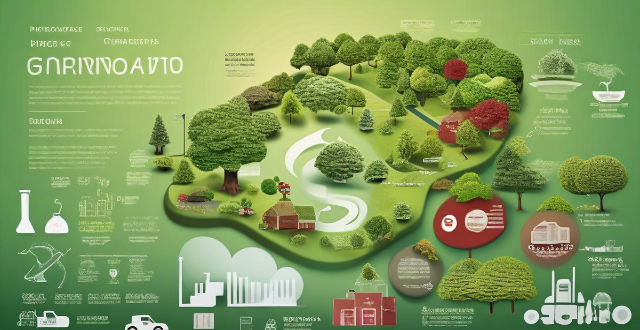This text discusses the importance of waste reduction in mitigating global climate change, highlighting how it can reduce greenhouse gas emissions, conserve natural resources, and protect ecosystems and biodiversity. It suggests ways to reduce waste such as reducing consumption, reusing items, recycling materials, composting organic waste, and supporting sustainable practices.

The Impact of Waste Reduction on Global Climate Change
Waste reduction plays a crucial role in mitigating the effects of global climate change. By reducing the amount of waste we produce and properly managing it, we can significantly reduce greenhouse gas emissions and contribute to a healthier planet. In this article, we will discuss the impact of waste reduction on global climate change and how we can all make a difference.
Importance of Waste Reduction
Reduction of Greenhouse Gas Emissions
One of the most significant impacts of waste reduction is the reduction of greenhouse gas emissions. When organic waste decomposes in landfills, it releases methane, a potent greenhouse gas that traps heat in the atmosphere. By reducing the amount of organic waste that ends up in landfills, we can significantly reduce methane emissions.
Conservation of Natural Resources
Waste reduction also helps conserve natural resources such as water, energy, and raw materials. For example, recycling paper saves trees and water, while recycling aluminum saves 95% of the energy required to produce new aluminum from bauxite ore. By reducing waste and recycling more, we can reduce the demand for these resources and slow down their depletion.
Protection of Ecosystems and Biodiversity
Waste reduction also helps protect ecosystems and biodiversity. Improper waste disposal often leads to pollution of air, water, and soil, which can harm wildlife and disrupt entire ecosystems. By reducing waste and properly managing it, we can help prevent these negative impacts on our environment.
Ways to Reduce Waste and Mitigate Climate Change
Reduce, Reuse, and Recycle
The three R's - reduce, reuse, and recycle - are essential principles for waste reduction. By reducing the amount of waste we produce, reusing items instead of throwing them away, and recycling materials whenever possible, we can significantly reduce our environmental footprint.
Composting Organic Waste
Organic waste makes up a large portion of the waste stream, but it can be composted instead of being sent to landfills. Composting organic waste turns it into a valuable resource for gardening and agriculture, while also reducing methane emissions from landfills.
Supporting Sustainable Practices
Supporting sustainable practices in your community and beyond can also help reduce waste and mitigate climate change. This includes supporting local businesses that prioritize sustainability, participating in community clean-up events, and advocating for policies that promote waste reduction and recycling.
In conclusion, waste reduction plays a crucial role in mitigating the effects of global climate change. By reducing the amount of waste we produce and properly managing it through principles like reduce, reuse, recycle, composting organic waste, and supporting sustainable practices, we can significantly reduce greenhouse gas emissions and contribute to a healthier planet. Let's all do our part to reduce waste and combat climate change together!